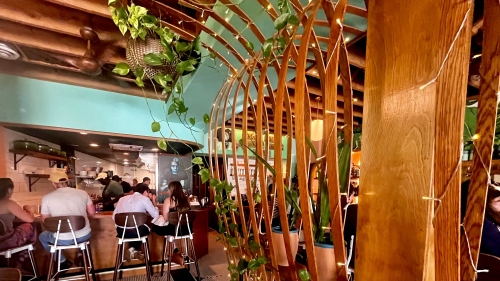March 4 is National Grammar Day + it would be a mistake to not address our state’s favorite expression — ope. This versatile word is a part of every Midwesterner’s vocabulary, but how did the word come to be?
While the word ope is ubiquitous among native Midwesterners, it’s caught on nationally as a Midwestern inside joke. But we like to think it’s just that catchy.
Ope is classified as a “surprise word,” or a tiny exclamation of surprise — as in “ope, sorry I bumped into you.” But that doesn’t stop it from taking on colloquial meaning.
The true etymology is most likely lost, but some speculate that it’s similar to oops. We tend to shorten common words over time: “yes” to “yeah,” “thank you” to “thanks,” and maybe “oops” to “ope.” Even the definition of oops is strikingly similar to ope, with the Random House Unabridged Dictionary defining it as an interjection “used to express mild dismay, chagrin, surprise, as at one’s own mistake.” Others have called out “oh” as the origin. When you cut off “oh” too soon, it sort of sounds like there’s a “p” at the end (try it). Hence, ope.
But there are rules, according to Midwestern expert Charlie Berens. “When in doubt, ope it out.” Or “ope before sorry, except after geez.”
Another benefit of using it? It’s a shorter way of saying “I’m sorry” when you bump into someone, reinforcing the Midwestern politeness we’re known for. It also helps Midwesterners to spot each other in the wild.
If you’re interested in learning more about the history of this or other Midwestern dialectisms, check out the following titles: How to Speak in Midwestern, How to Talk Minnesotan, and The Midwest Survival Guide.











